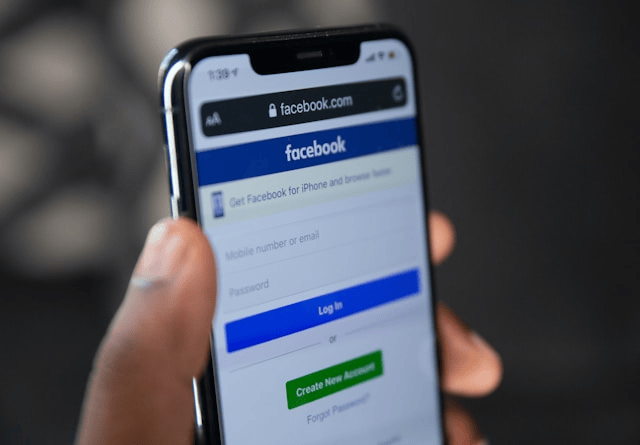In an era dominated by viral short videos, flashy dance challenges, and influencer culture, it’s easy to assume that Facebook is fading into the background. After all, TikTok seems to be the epicenter of youth engagement and digital trends. But in 2025, dismissing Facebook as irrelevant is not only inaccurate it’s a major misstep for anyone serious about social media strategy.
Despite fierce competition, Facebook remains a powerhouse in digital engagement, advertising, and community-building. Here’s why Facebook still matters in 2025 even with TikTok around.
Facebook’s Evolving Demographics Still Drive Results
While Gen Z may spend more time on TikTok, Facebook’s user base has evolved rather than evaporated. It remains the go-to platform for Gen X, Millennials, and Boomers, who continue to engage with content, join interest-based groups, and shop on Facebook Marketplace.
In fact, Facebook demographics in 2025 show that users aged 30–55 make up the bulk of active daily engagement. These users typically have higher purchasing power, making them an ideal target for brands looking to convert engagement into revenue. Unlike TikTok’s fast-scrolling teens, Facebook’s core users are more likely to read, comment, and click through to offers making them valuable in both B2C and B2B contexts.
Facebook’s Advertising Machine Remains Unmatched
When it comes to digital advertising trends, Facebook still sets the gold standard. With years of refined algorithms, Meta’s advertising tools allow for pinpoint targeting, custom audiences, and advanced remarketing that few platforms can match.
Facebook marketing in 2025 offers deep audience insights, integration with Instagram and WhatsApp, and analytics that help marketers optimize campaigns in real time. While TikTok ads can be powerful for brand awareness, Facebook often outperforms in terms of conversion, lead generation, and direct sales especially for service-based businesses and e-commerce stores.
And let’s not forget Facebook Marketplace, which has grown into a serious competitor to platforms like Craigslist and eBay. Businesses and individuals alike use it to reach local buyers in a highly active ecosystem.
Utility Over Novelty: Facebook Is More Than Entertainment
Where TikTok is primarily about entertainment and discovery, Facebook leans into utility. It’s where people go to RSVP to events, join local community groups, post job openings, sell used furniture, and stay connected with family.
In 2025, Facebook Groups have become even more central to the platform’s engagement strategy. Whether it’s a parenting support group, a local hiking club, or a B2B mastermind network, Facebook provides spaces for meaningful, interest-based discussions. These groups often boast higher engagement than public posts or brand pages.
Additionally, Facebook’s event tools, live streams, and content sharing options remain robust and integrated. That gives users more ways to interact with content than TikTok’s mostly one-directional feed.
Trust, Familiarity, and Social Longevity
One of the most underestimated reasons Facebook still matters in 2025 is trust. Despite controversies over the years, many users still see Facebook as a trusted platform for event planning, group discussions, and even local news. It’s the digital version of your neighborhood town hall—familiar, organized, and always there.
This sense of familiarity means users are more comfortable making purchases through Facebook Shops, clicking links, or responding to brand messages. When planning a social media strategy, businesses often use Facebook as the “base camp” from which they branch out to faster-growing but less stable platforms.
TikTok vs Facebook: A Battle of Function, Not Just Form
It’s tempting to pit TikTok and Facebook against each other as rivals fighting for the same audience. But in reality, they serve very different purposes. TikTok is exceptional for viral content, trend-jacking, and capturing fleeting attention. Facebook, on the other hand, is where deeper interactions, community engagement, and long-term customer relationships happen.
In 2025, a balanced social media strategy doesn’t mean choosing between TikTok and Facebook—it means knowing how and when to use each. A viral TikTok video can drive awareness, while a well-targeted Facebook ad can close the sale.
For example, a brand might launch a challenge on TikTok to generate buzz, then retarget those same users on Facebook and Instagram with more detailed offers or invitations to join a private group.
Looking Ahead: Facebook’s Future in a Multi-Platform World
Meta isn’t sitting still. With ongoing investments in AI, AR/VR, and the metaverse, Facebook continues to evolve. The platform’s integration with Meta Quest and upcoming virtual community tools will only deepen user engagement in new dimensions.
As digital experiences become more immersive and personalized, Facebook’s ability to adapt gives it an edge. Whether it’s through AI-driven ad targeting, avatar-based interactions, or hyperlocal commerce, the platform continues to offer both users and businesses opportunities that newer apps haven’t fully developed.
Final Thoughts
Facebook may not be the shiny new toy, but in 2025, it’s more relevant than ever. Its vast user base, advanced ad system, community-building tools, and cross-platform integration make it an essential piece of any serious digital strategy.









